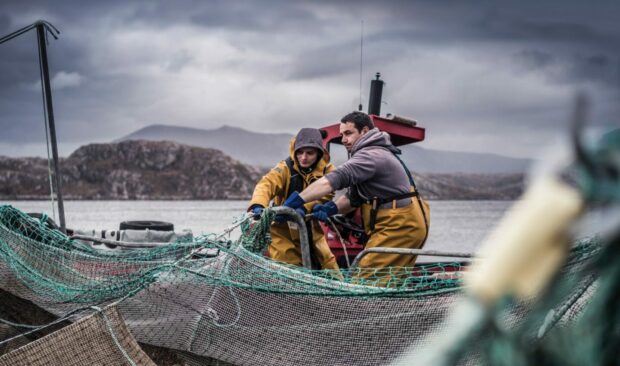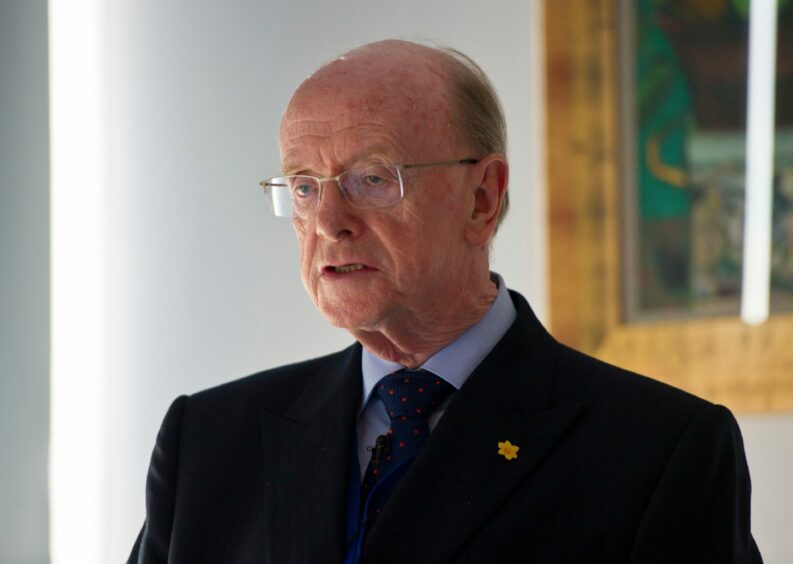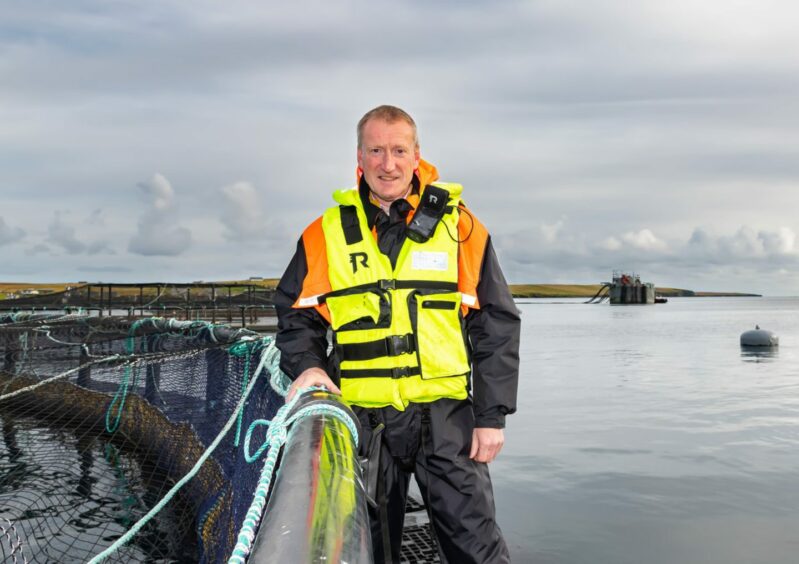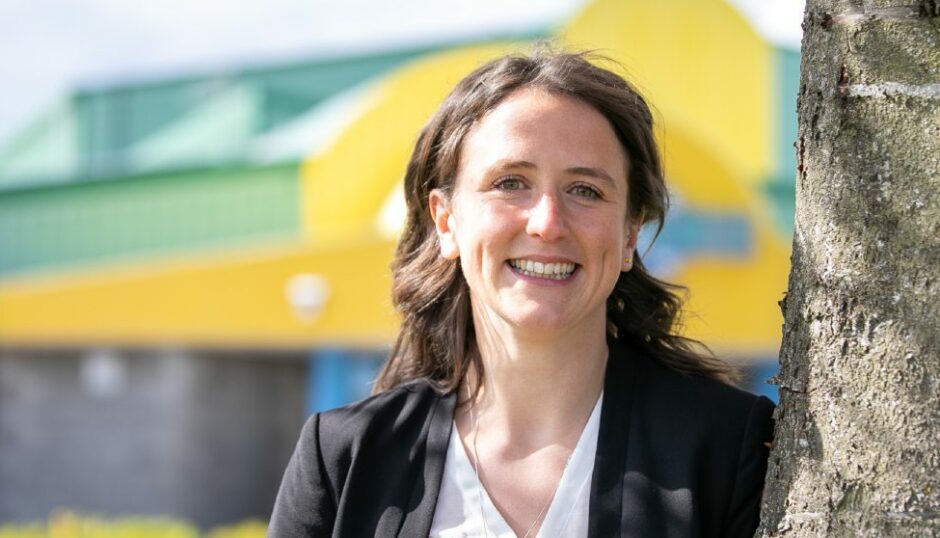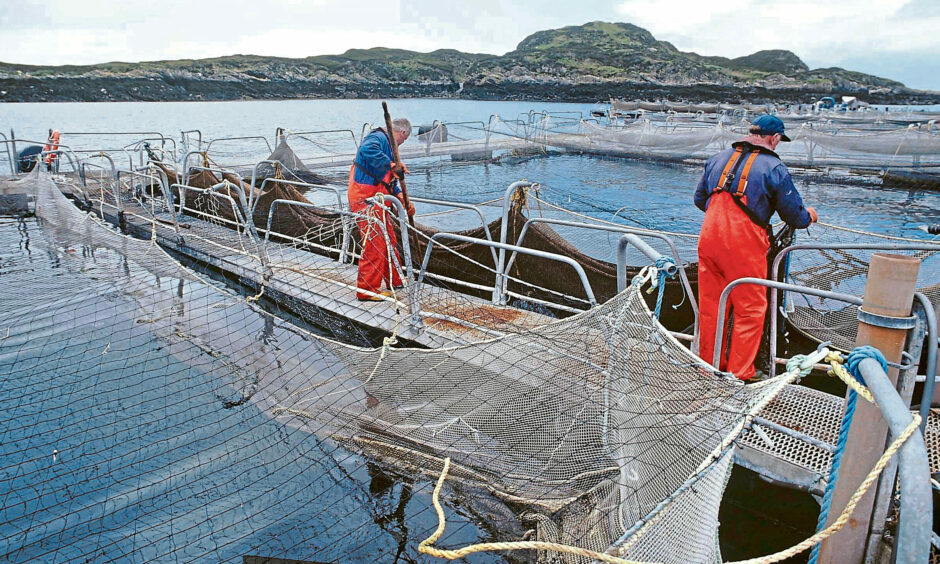Salmon Scotland has welcomed the personal involvement of Rural Affairs Minister, Mairi Gougeon in a 12-month review of the aquaculture sector aiming to secure a jobs bonanza for the Highlands and Islands, but concedes there will be “haggling of course.”
The minister said today at the Aquaculture UK exhibition in Aviemore she “broadly accepted” proposals by Professor Russel Griggs in his recent report on the sector, which previously launched a volley of withering criticism citing “mistrust and vitriol” from stakeholders.
The academic had referred to tensions erupting between operators, environmentalists and policy makers, which were at a level “I have never seen before,” but Salmon Scotland is pointing to the considerable uptick in jobs should production regulation improve as a result of his report.
Salmon farming employs an estimated 2,500 people in Scotland, while according to the trade body, it also supports more than 3,600 suppliers and 10,000 indirect jobs, with the potential for considerably more growth
Professor Griggs recommended a reformed regulatory framework should be delivered within one year to reform a sector reeling from a cocktail of challenges, notably labour shortages, inflationary pressure and a chronic shortage of housing for workers, as well as issues surrounding planning permission for growth.
Held back by “regime not fit for purpose”
“There will be haggling, of course there will [but] it is a difference between being able to sustainably grow and not to grow,” Salmon Scotland chief executive and former Shetland Islands MSP, Tavish Scott told the Press and Journal at Aquaculture UK.
“We are being held back by a regime not fit for purpose – that system is effectively broken. She [minister] recognised Professor Grigg’s findings in the complete breakdown in relationships.”
“We are very pleased the government recognises the regulatory regime is not fit for purpose and it must change.”
The minister appeared to acknowledge underlying tensions between the various industry, environmental and political stakeholders, noting she was “determined to reset relationships,” adding: “That will require leadership from all those involved.
“The sector can only be truly sustainable if economic growth [is linked to] Scotland’s communities and natural environment.”
Professor Griggs made proposals for a single consent document and the development of separate frameworks for fish, shellfish and seaweed farms, with Holyrood appearing to embrace many of the reforms.
“We know change is needed”
“We have broadly accepted the recommendations in principle but we do need to do some more detailed work,” said Ms Gougeon. “I want the Scottish regulatory regime to be regarded as one of the most efficient and transparent in the world.
“We know change is needed [and] I will personally oversee the next phase of this work. I will launch a new Ministerial Aquaculture Forum to address the challenges.
“I have asked the Scottish Science Advisory Council to consider the issues of aquaculture science referred to by Professor Griggs.”
Frustration within the salmon farming sector in particular is palpable as regulation is currently holding back growth which could potentially create vast numbers of new jobs in the Highlands and Islands.
Salmon Scotland declines to put a precise number on extra staffing numbers which could be triggered by a significant upswing in production, but points to the knock-on effect through the supply chain any easing of administrative procedures could provide.
“We are competing with Norway which is growing at three times the growth of the Scottish industry in volume terms and we would aspire to that,” added Mr Scott.
“The supply chain is incredibly important to our producing companies – if we can grow the industry, we can grow the supply chain.
“Until we can get the regulatory package through, until we know the framework, it is difficult to give a ballpark [extra tonnage] figure.”
Mr Scott expressed confidence, however, that the fact Mairi Gougeon is personally chairing the process of reform will see words translated into concrete action – and quickly.
“It is clear the Minister wants action, she wants rapid progress,” he said. “I would take that to mean exactly that. The minister today was very clear and showed determined leadership.”
Labour and housing shortages across Highlands and Islands
One severe challenge currently being experienced across multiple Highlands and Islands industries is that of finding enough workers and sufficient housing for them with Wester Ross Fisheries for example saying: “We are always running short of staff and are permanently recruiting,” a situation addressed by the rural affairs secretary.
“I am acutely aware of labour issues,” said Ms Gougeon. “Labour is raised as one of the most critical issues [and] we have been in touch with the UK government on this. We see labour shortages as a result of European Union exit.
“People are competing for more of a workforce – they are simply not getting the people to fulfill these roles.
“Depopulation in rural areas is a critical issue. To address labour shortages would be for the UK government to take action. We need these levers used by the UK government because it is those rural areas and island areas where there are food and drink businesses.
“The frustrating thing is we have put forward proposals [but] are meeting a brick wall – there is a refusal to look at migration.”
